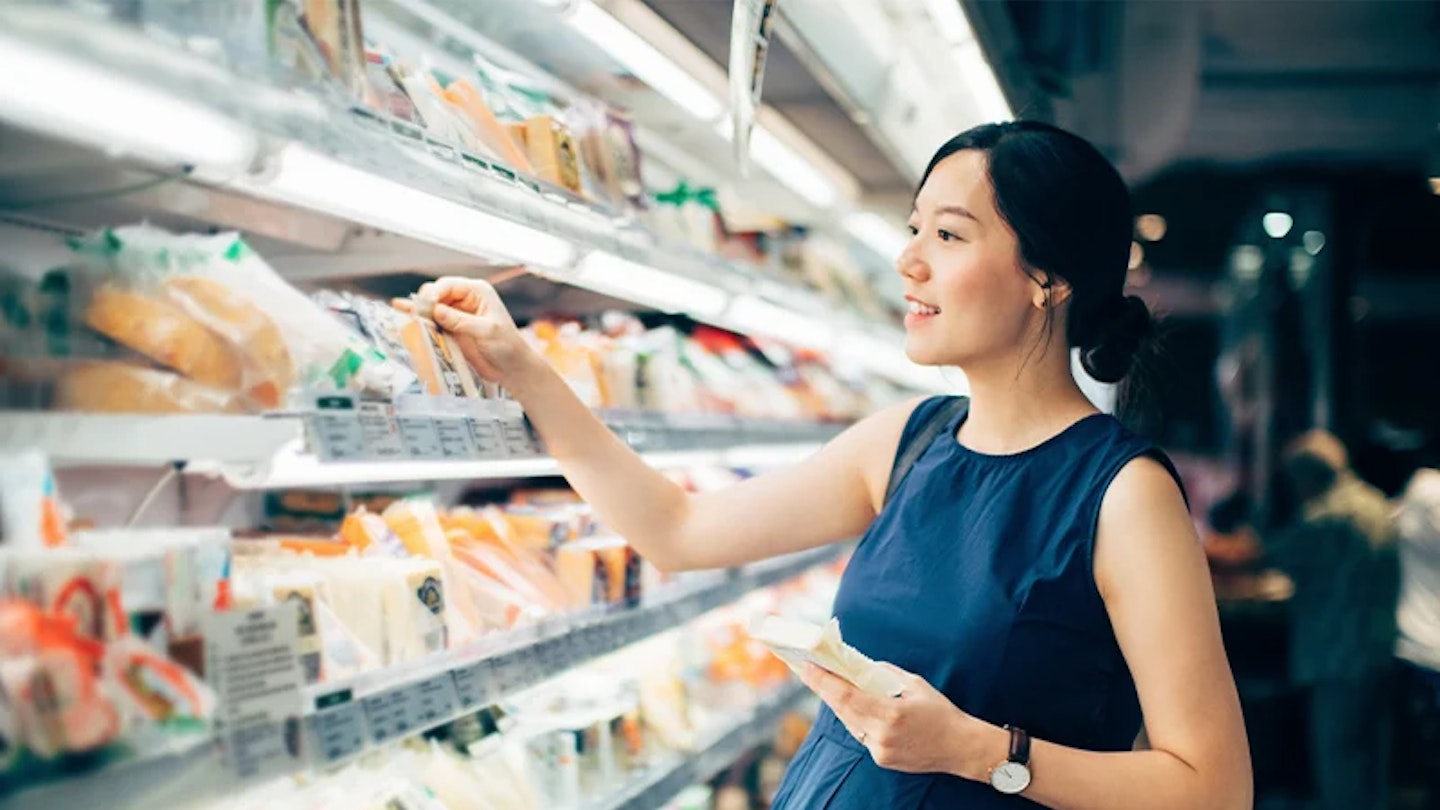We all love a bit of cheese from time to time, and if you've got a craving for some Cheddar on crackers or a delicious mozzarella salad, you might be wondering if it's safe to eat cheese during pregnancy.
It's safe to say that cheese and pregnancy don't go together quite as well as cheese and crackers, and while reaching for a slice of cheese might make an easy lunch, it's not that simple when you’re expecting. That's because some cheese carries a risk of listeria - a bacteria that’s present in certain types of cheese and which can cause food poisoning.
Fitness, wellness guru and nutrition expert Penny Weston says, "Listeriosis is a rare infection caused by bacteria called listeria. It usually goes away on its own, but can cause serious problems if you're pregnant or have a weak immune system. There’s a small chance it can lead to miscarriage, stillbirth or make a newborn baby poorly. Listeria can infect the placenta, the amniotic fluid, and the baby, and can cause miscarriage or stillbirth. Infected babies who survive are likely to be born prematurely."
While that sounds scary, don't worry. There's still plenty of cheese that's safe to eat when you're pregnant - we’ve picked 15 of the best…
Which cheese is safe to eat during pregnancy?
All hard cheeses are safe to eat during pregnancy as well as some soft cheeses made with pasteurised milk. Below we've rounded up some of our favourite cheeses which you can still enjoy while you're pregnant.
Cheese that's safe to eat in pregnancy
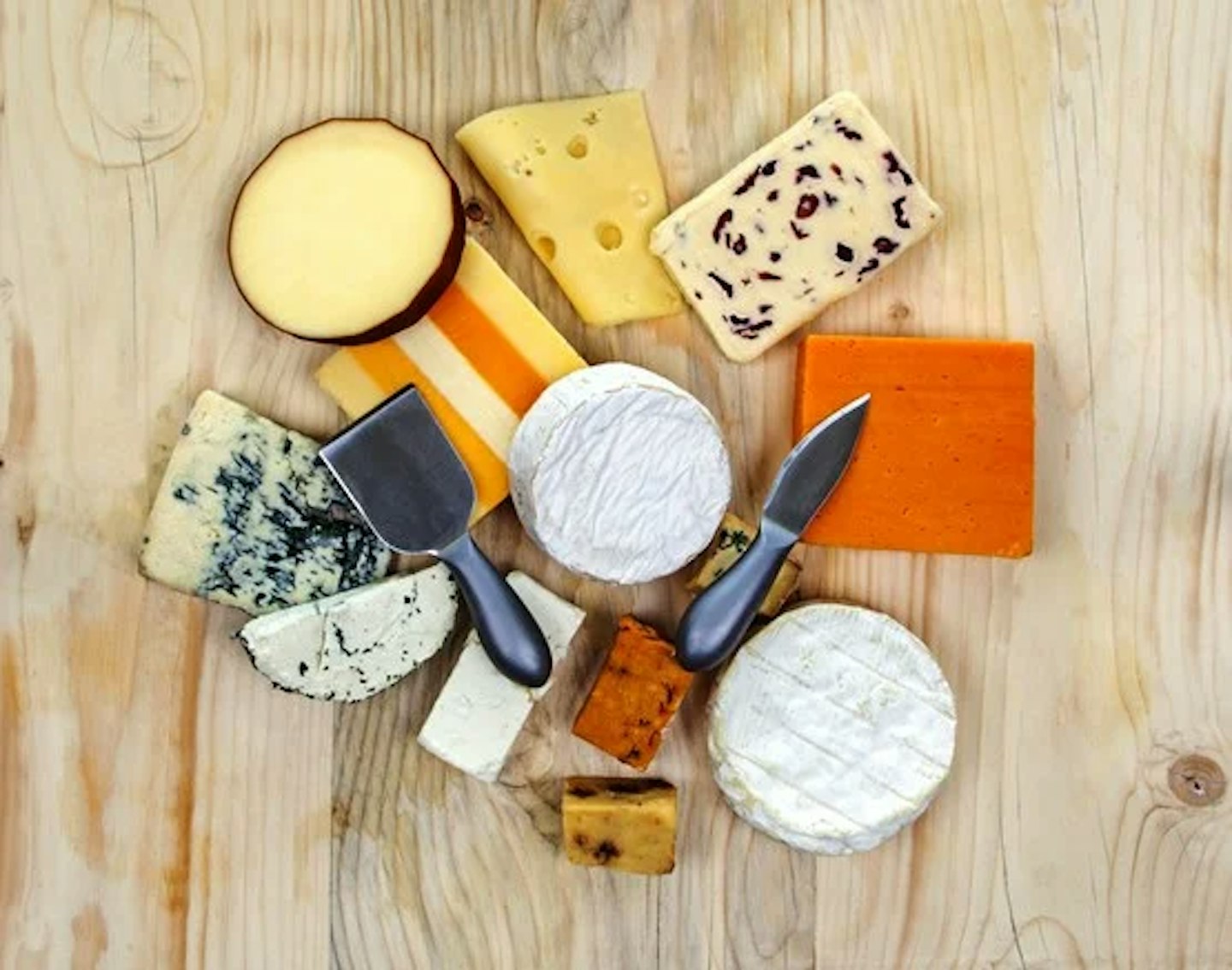 1 of 15
1 of 15Double Gloucester
A hard, orange cheese, Double Gloucester is a great alternative to Cheddar and grating it into cheese sauces or macaroni cheese adds a bit of colour.
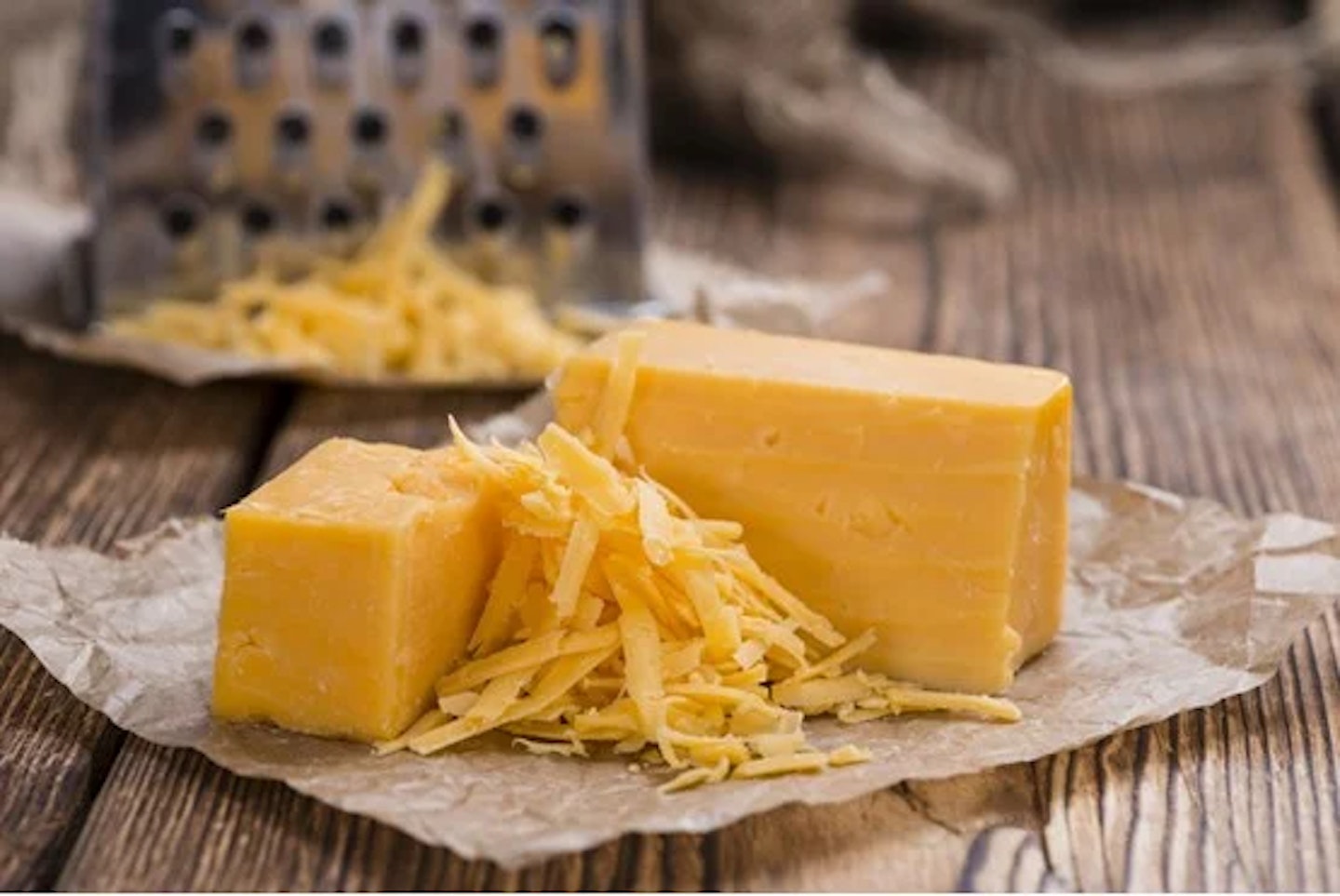 2 of 15
2 of 15Cheddar
The crumbly, creamy tangy flavour of a good Cheddar can make all of life’s little problems disappear, especially when it’s grated liberally over bread and toasted.
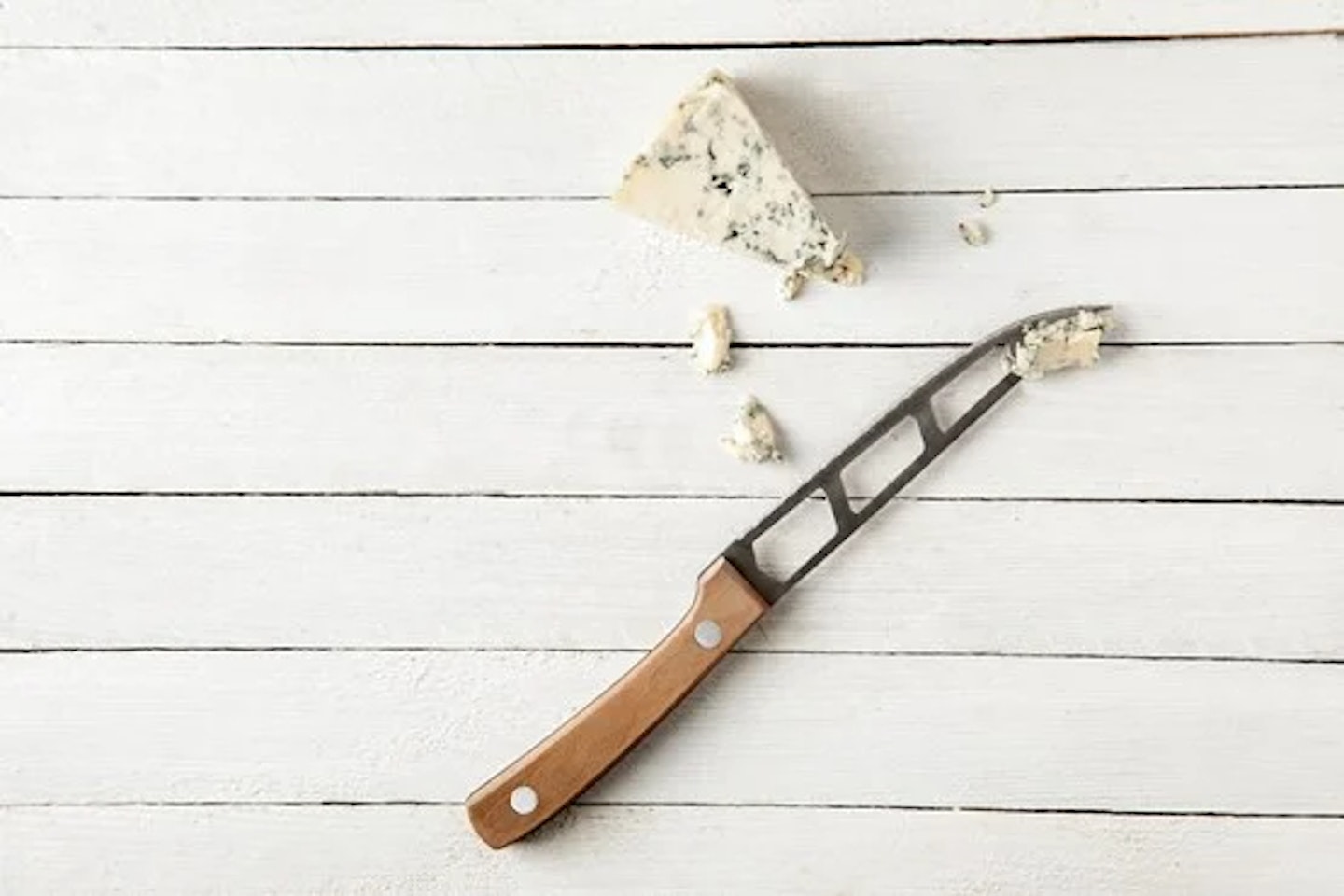 3 of 15
3 of 15Stilton
Despite being a blue cheese, Stilton is actually safe to eat in pregnancy because it’s a hard cheese, which doesn't contain as much water as soft cheeses, so bacteria (such as listeria) are less likely to grow in them.
However, steer clear of soft blue cheeses such as Gorgonzola and Roquefort unless cooked thoroughly.
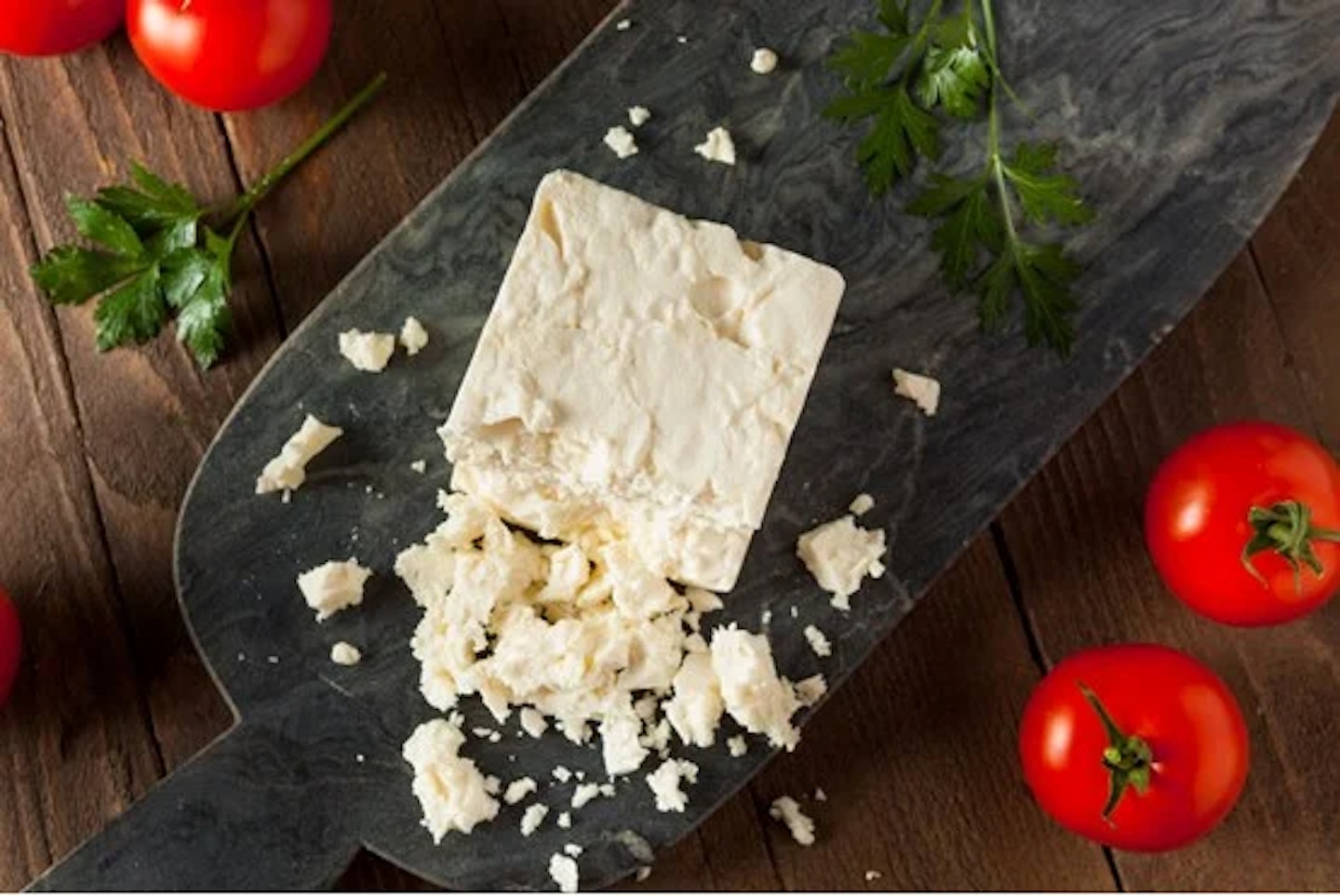 4 of 15
4 of 15Feta
Made from a mixture of sheep’s and goat’s milk, feta originated from Greece and is used regularly in Mediterranean cooking. And if you've been wondering 'can you eat feta cheese when pregnant?', the good news is yes, you can. Not only that, but it’s a rich source of vitamin B12, so eating feta when pregnant can aid the growth and development of your baby.
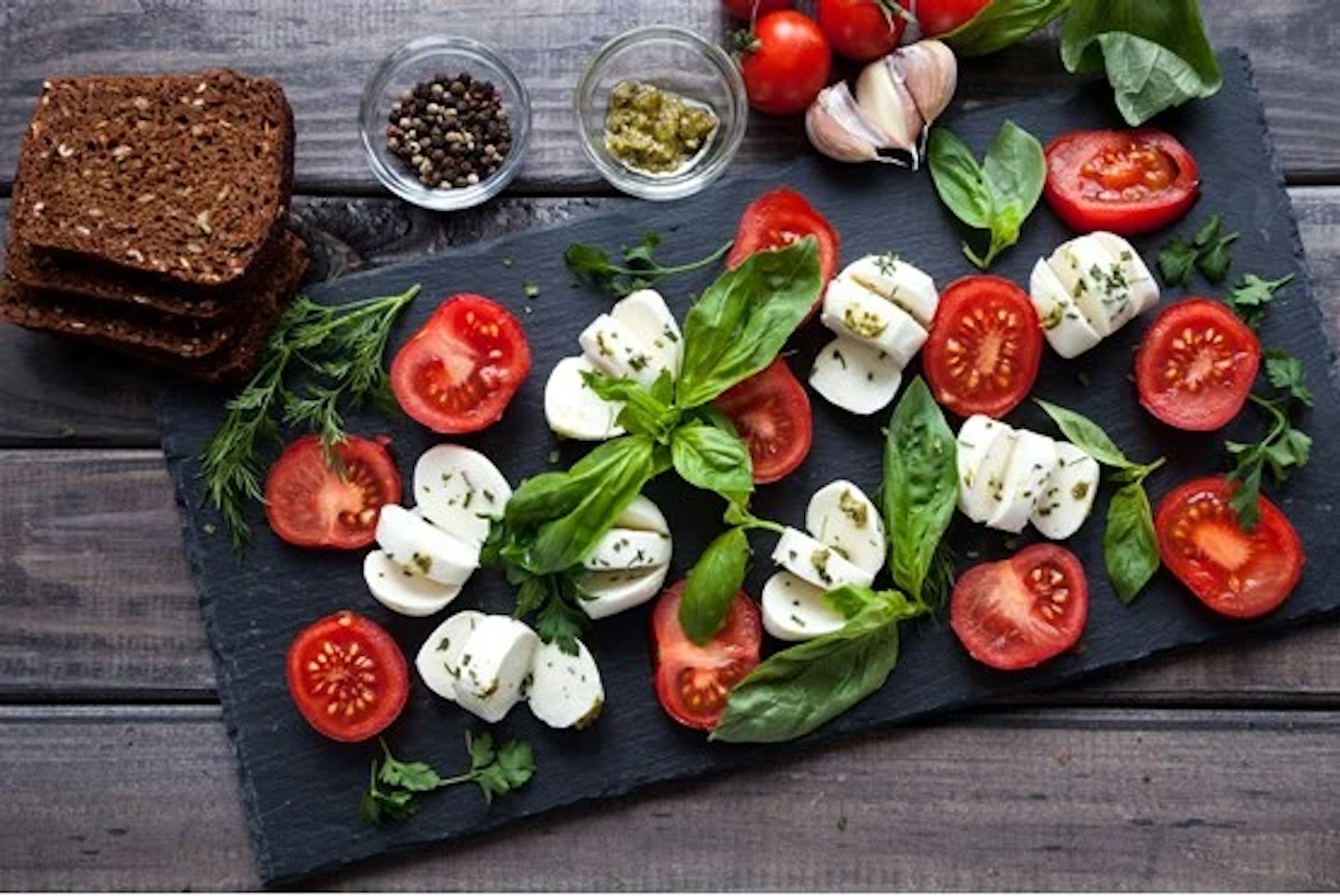 5 of 15
5 of 15Mozzarella
So long as mozzarella is made from pasteurised milk, it’s fine to eat in pregnancy. Add to pizzas, slice it over the top of lasagne or pasta dishes or serve cold with tomatoes and basil.
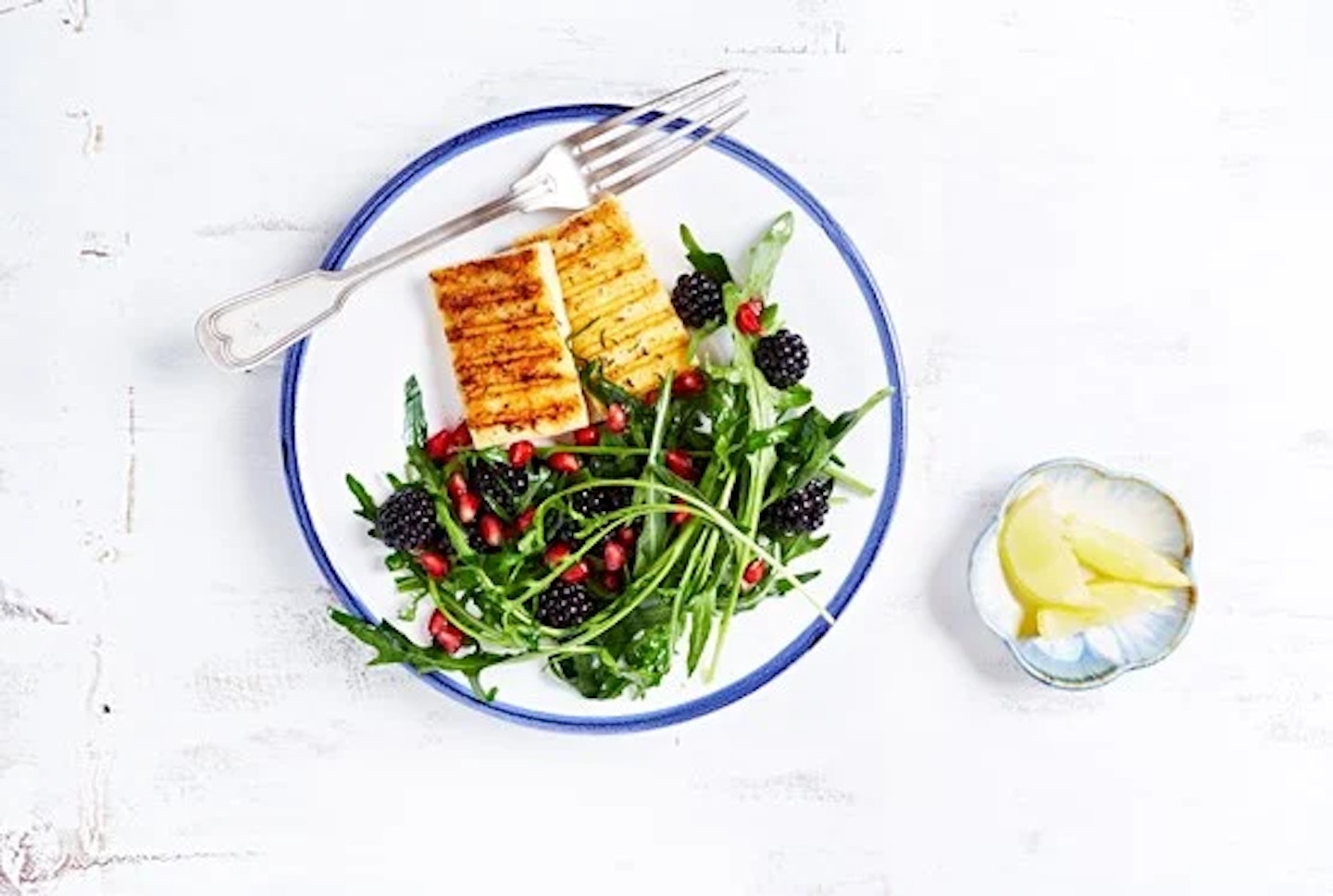 6 of 15
6 of 15Halloumi
With its firm, springy texture, halloumi can be grilled or fried while still retaining its shape. It's one of the tastiest cheeses and a great option for barbecues so luckily you can eat halloumi when pregnant. Ideal for adding to salads such as this Halloumi, Asparagus & Pomegranate Quinoa Salad.
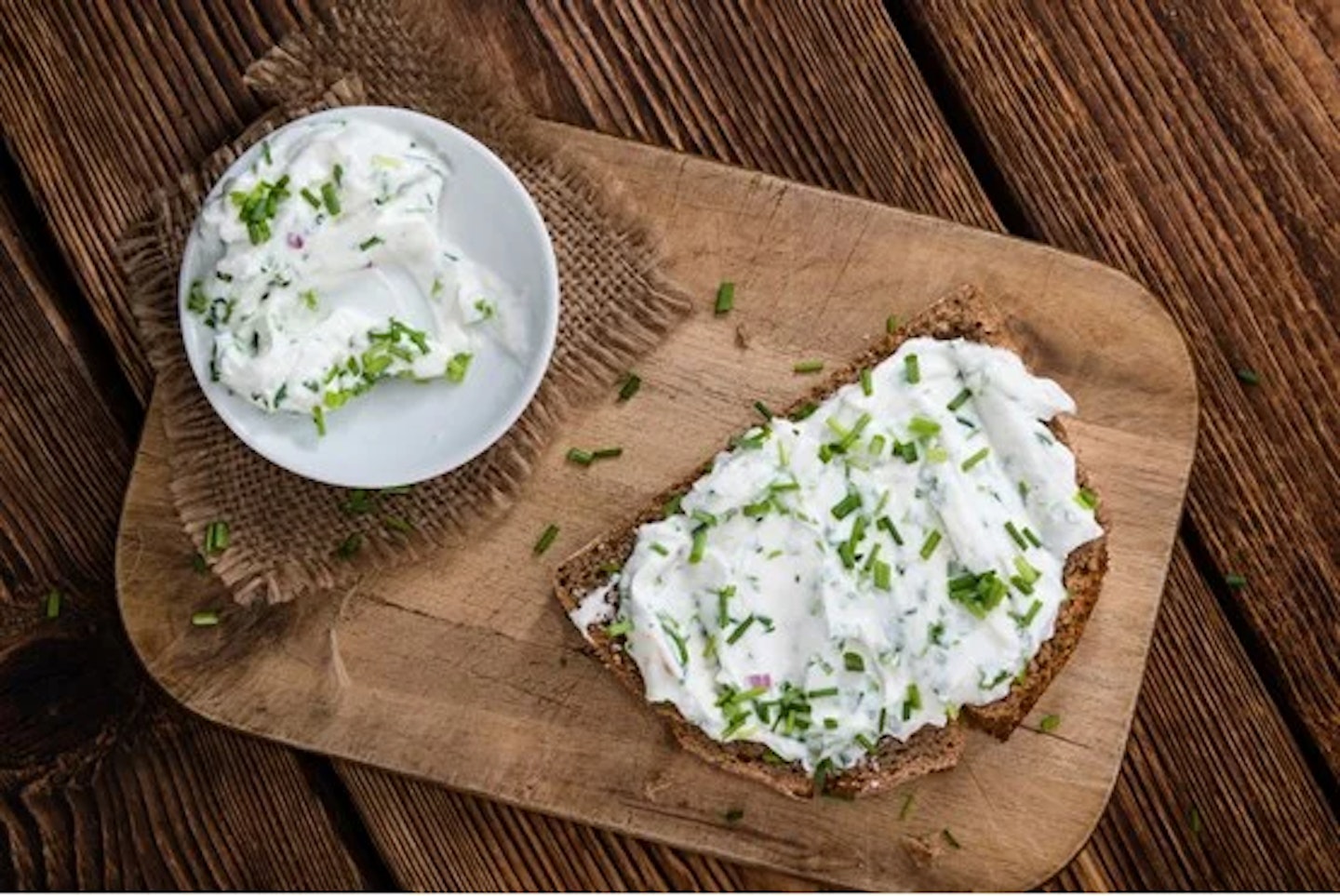 7 of 15
7 of 15Soft cheese
Cream cheese for pregnant women is absolutely fine as cheese spreads such as Philadelphia are made with pasteurised milk. As well as adding to sandwiches, it’s great on toast and topped with tomatoes for a tasty breakfast.
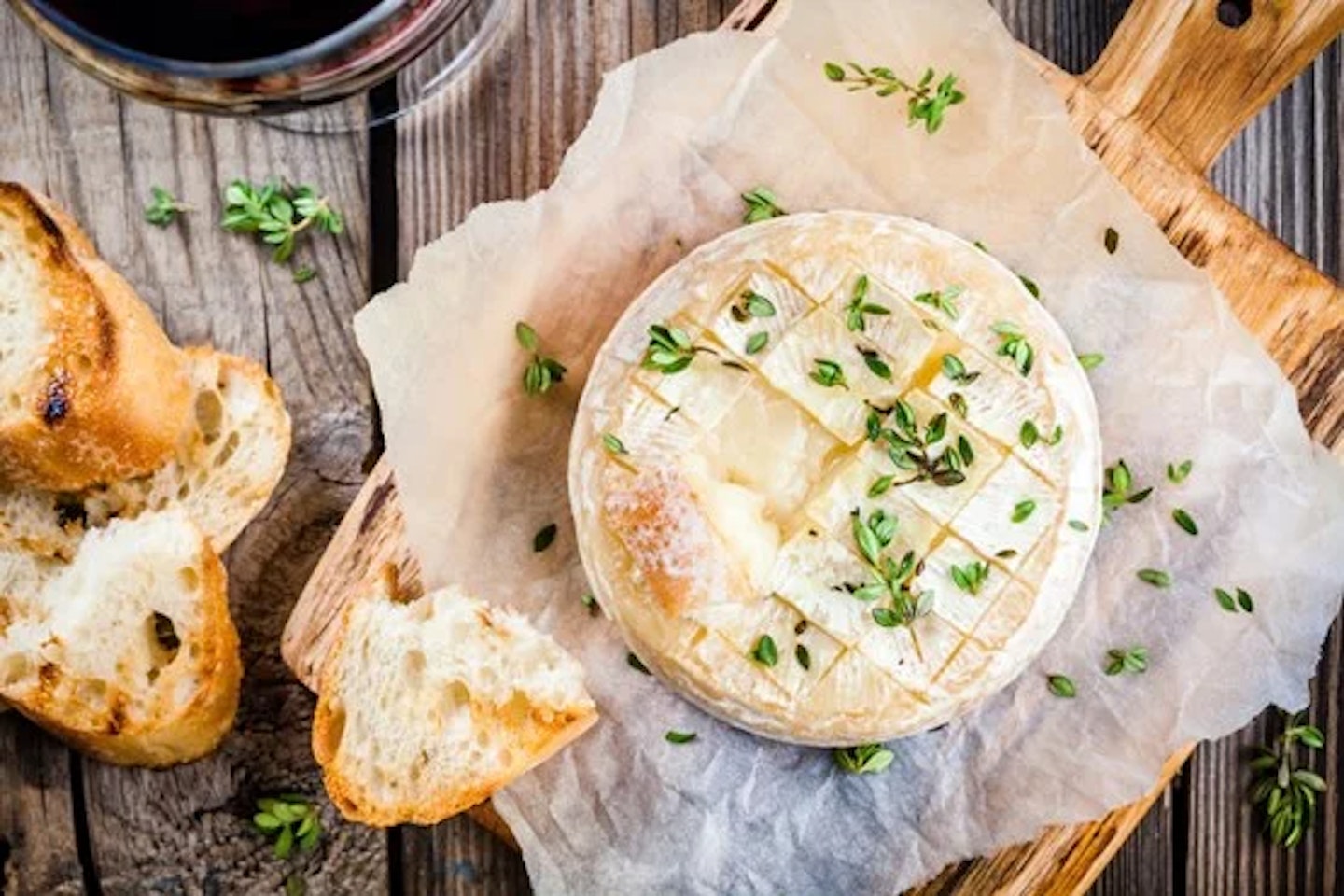 8 of 15
8 of 15Baked camembert
While Camembert is normally not safe to eat in pregnancy as it’s a soft, rind cheese, bake it in the oven until it’s piping hot all the way through and you kill off the listeria bacteria that can be dangerous. Get some fresh, crusty bread and dig in.
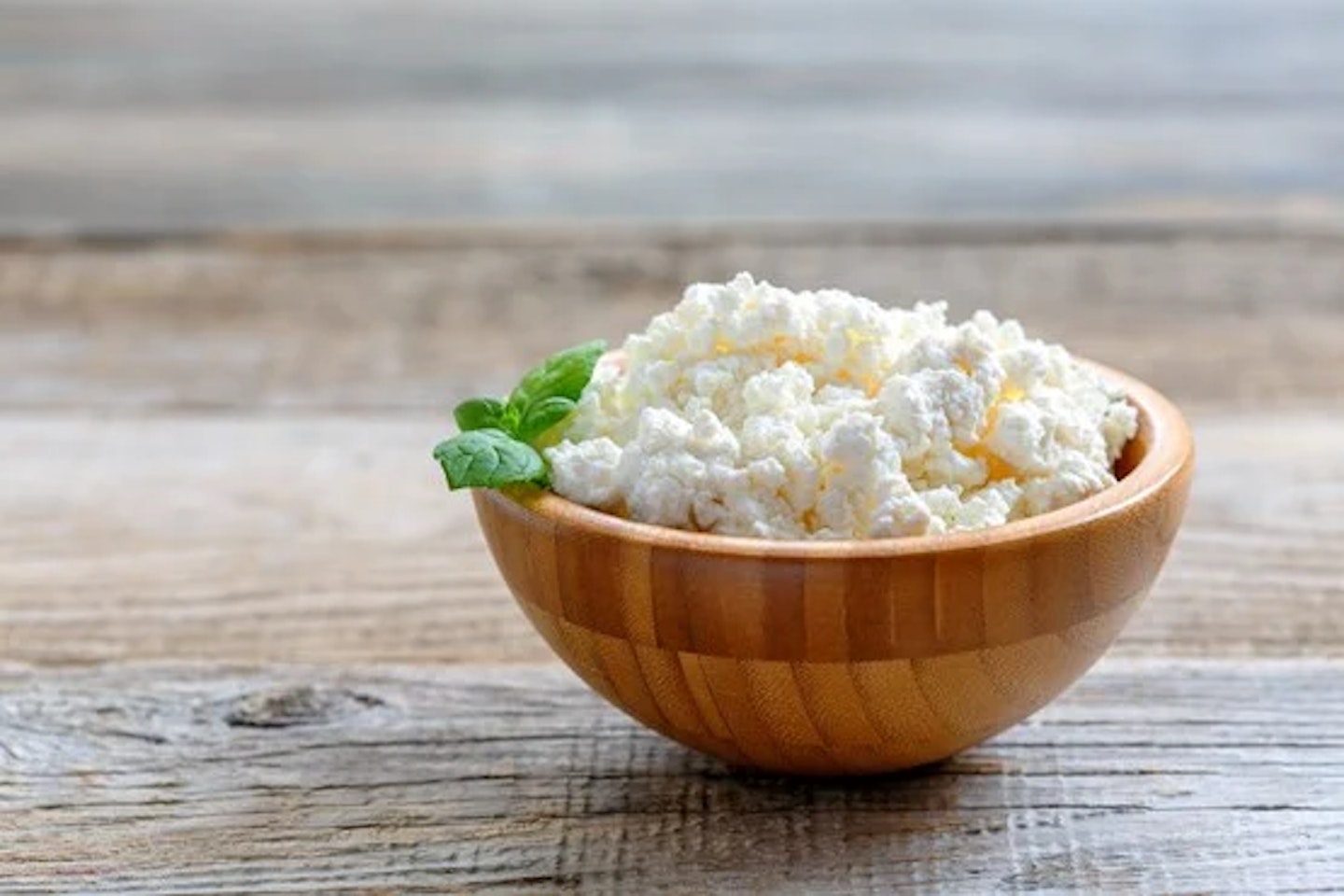 9 of 15
9 of 15Cottage cheese
Classically seen as a “slimmer’s food” because of the low-fat content, cottage cheese is good for adding to jacket potatoes, topping on oatcakes or adding to spicy chicken wraps.
It’s a great food in pregnancy as it’s high in protein, which you need to aid your baby’s growth.
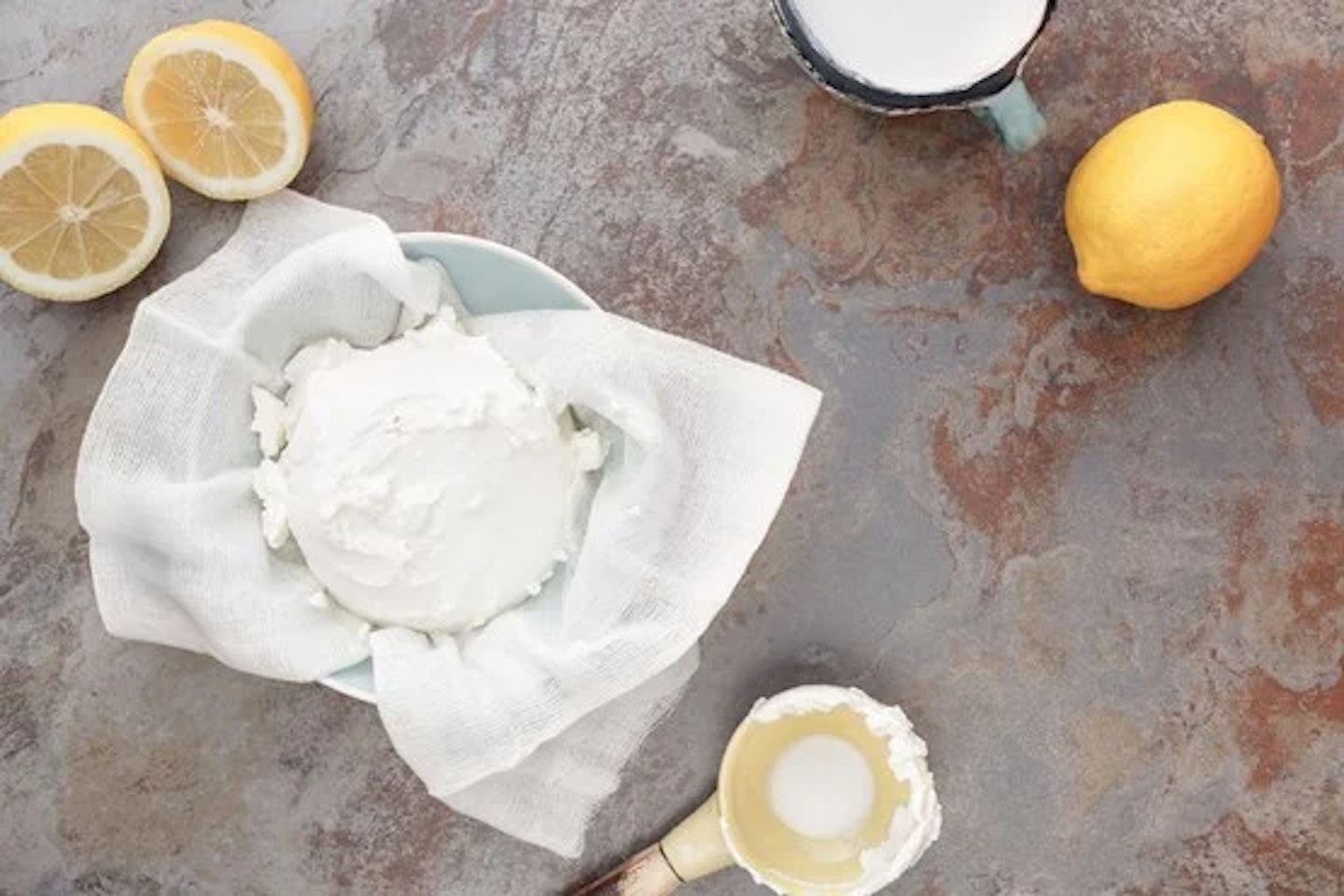 10 of 15
10 of 15Mascarpone
A soft, spreadable cheese that originates from Italy, mascarpone is safe in pregnancy as long as the milk it’s made from is pasteurised. It has a very mild flavour so can be used in both savoury and sweet flavours for adding creaminess.
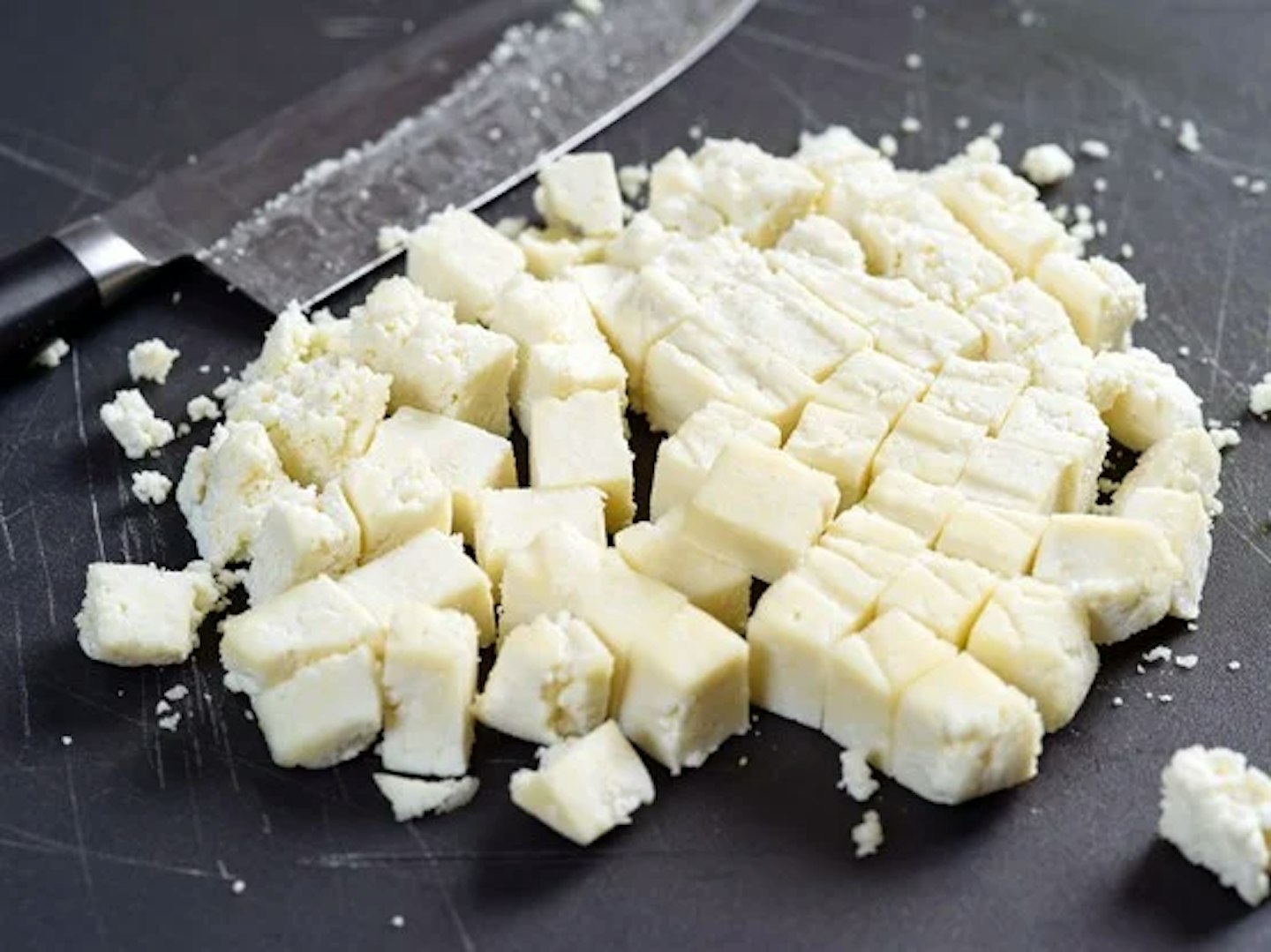 11 of 15
11 of 15Paneer
This classic Indian cheese is often served in curry to add texture, or alongside spinach. It’s mild flavour and slightly chewy texture means it goes well in spicy dishes.
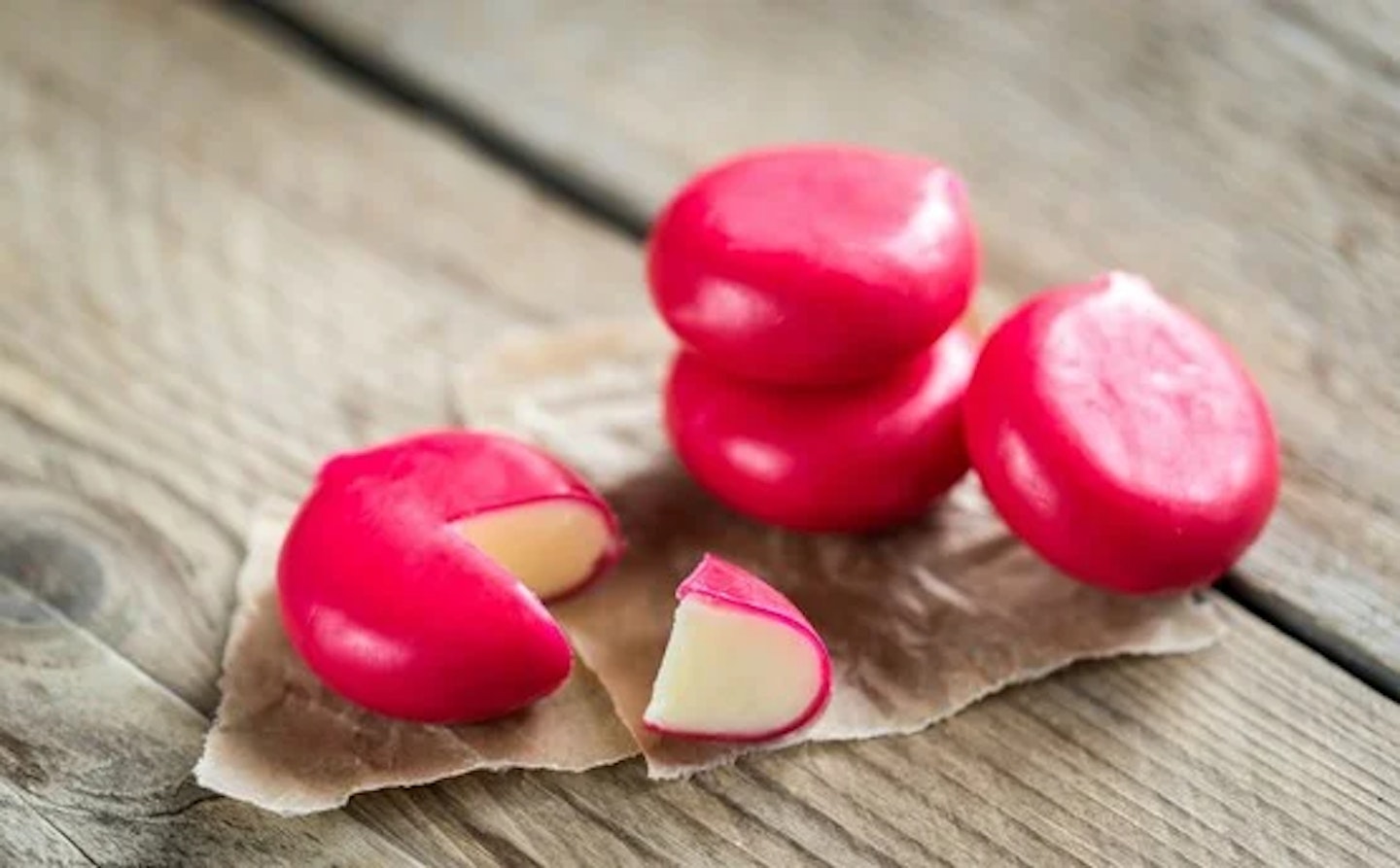 12 of 15
12 of 15Edam
This Dutch cheese is mild and creamy so ideal for a quick cheese on toast snack. Mini Edam cheeses such as Babybel make great snacks to keep you going through the day (for you as well as your kids!) and are handy to have in your bag when you need a boost.
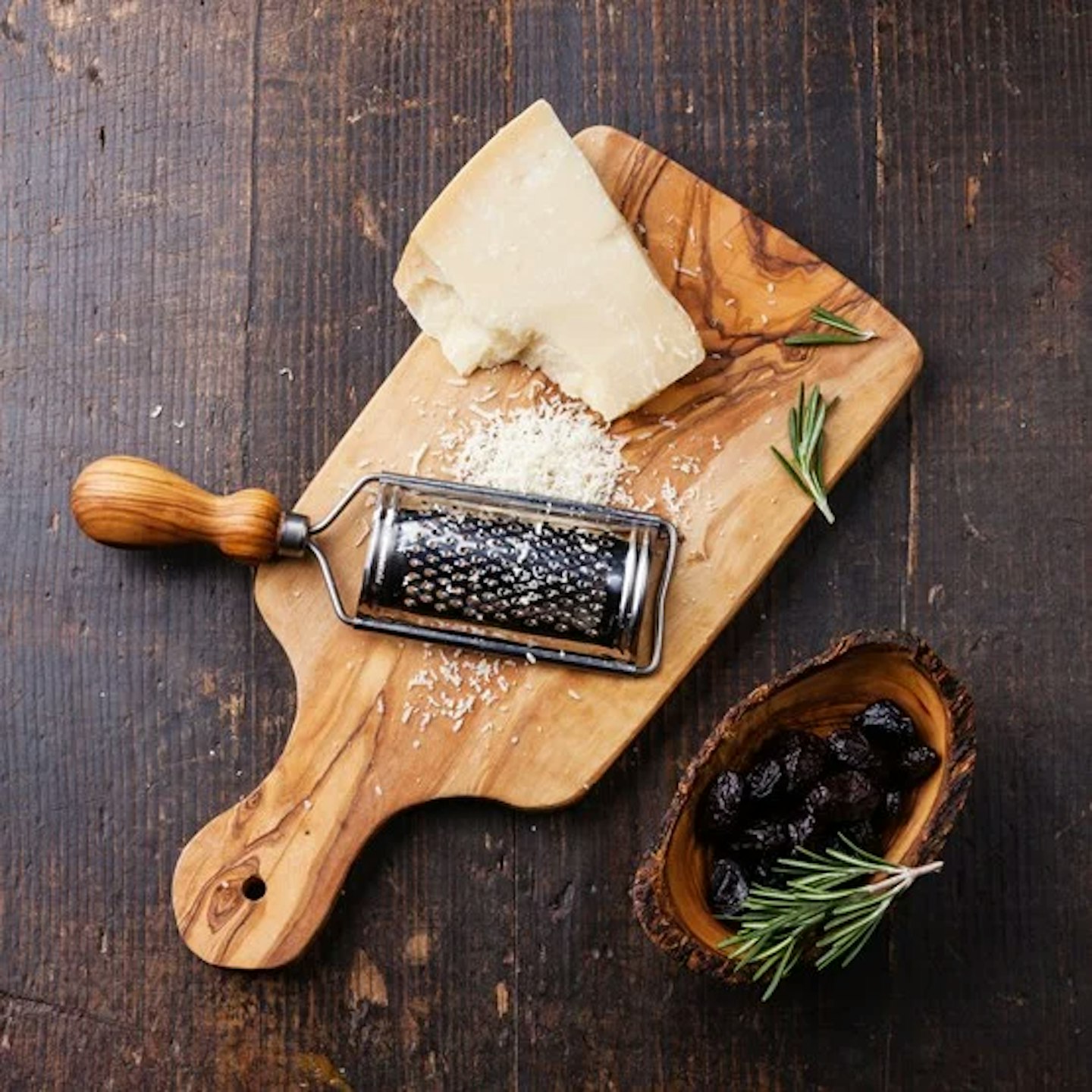 13 of 15
13 of 15Parmesan
Harder cheeses tend to carry the lowest risk of listeria, so a very hard cheese such as Parmesan (or pecorino) is fine to eat in pregnancy. Try grating slithers into a salad or sprinkling finely grated Parmesan over pasta dishes.
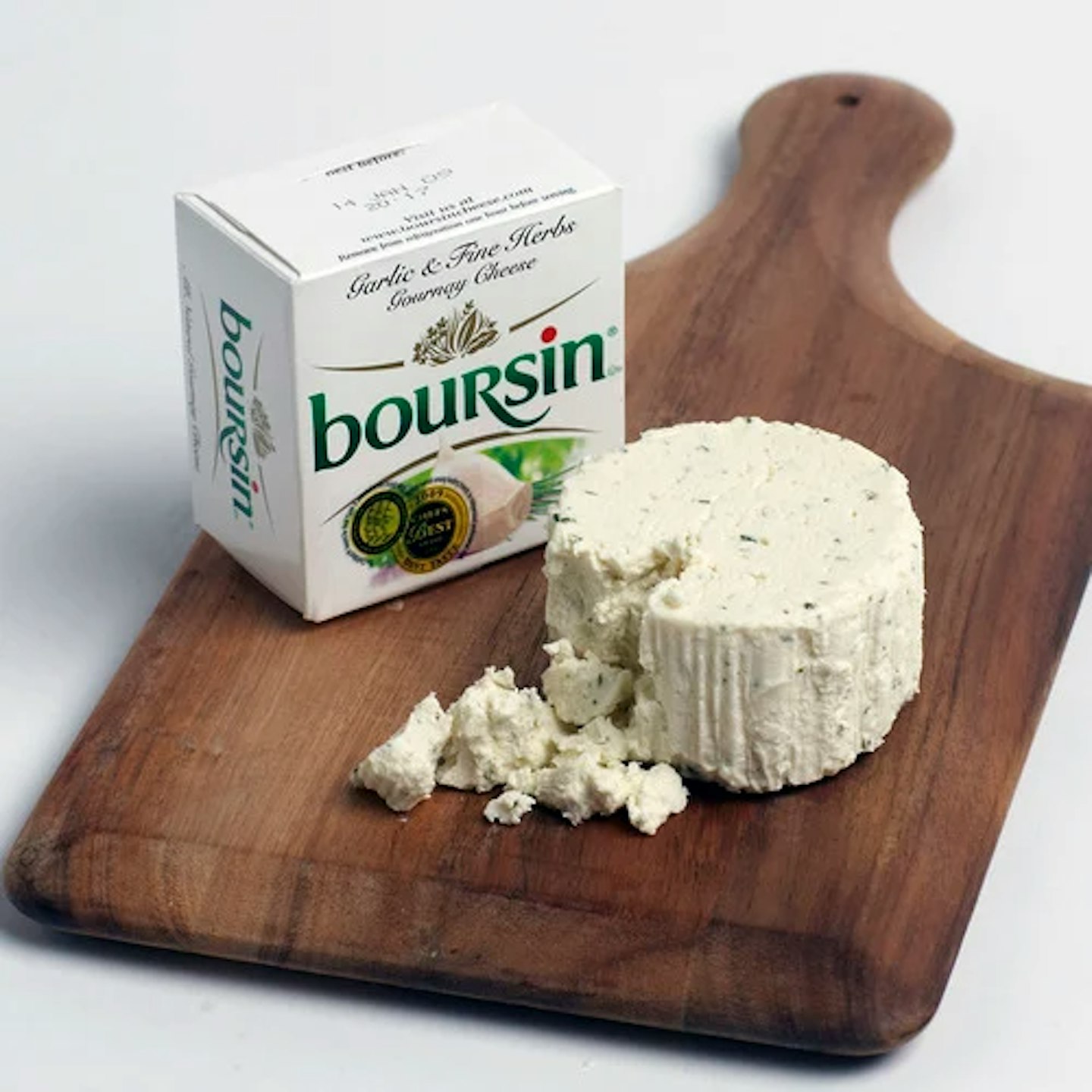 14 of 15
14 of 15Garlic and herb roulade
Although it’s a soft cheese, garlic and herb roulade cheese is safe to eat in pregnancy as long as it’s made with pasteurised milk. Perfect for spreading on a baguette or mixing into a cheese sauce for added flavour.
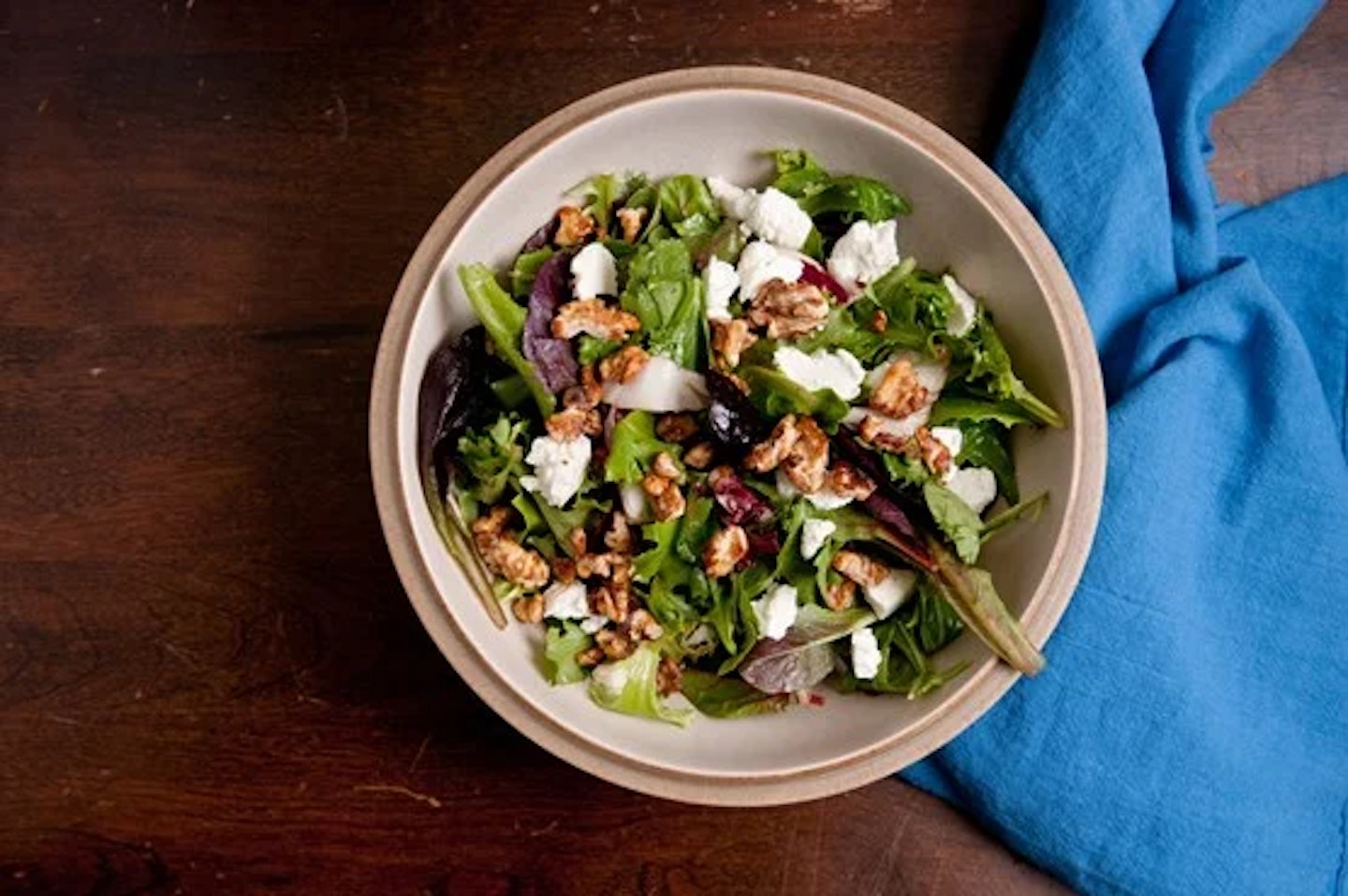 15 of 15
15 of 15Goat’s cheese without rind
While eating goats cheese during pregnancy is normally advised against, you can buy rindless varieties that are safe in pregnancy. Avoid the goats cheeses with rinds, like chèvre, unless they've been baked.
Which cheese should I avoid in pregnancy?
You've probably discovered there are many foods to avoid in pregnancy and sadly when it comes to cheese and pregnancy, you'll find that many soft cheeses fall into this category, including brie, camembert and chèvre (a type of goat’s cheese).
As well as these, you should also avoid Danish blue cheese, gorgonzola and roquefort.
These soft, moist cheeses allow listeria bacteria to grow on them and although it's very rare, in some cases you can catch an illness called listeriosis from this cheese which may harm your unborn baby. This is why there are only certain cheesecakes you should eat while pregnant.
The good news? You can enjoy any of these cheeses if they're cooked! So if you fancy a melting camembert with some bread, just ensure it's piping hot (not just melting) before you eat it.
What about vegan cheese?
Generally, vegan cheese is safe to eat while you're pregnant. However, they aren't going to provide a good source of calcium and can often be highly processed. According to Penny, vegan cheese is usually safe to consume in pregnancy.
‘It's always advisable to do a thorough check of the ingredients and contact a medical practitioner if you’re at all concerned. In order to boost calcium levels if you’re having a vegan pregnancy you can consume more of the following foods, which are all rich in calcium: dark green leafy vegetables, pulses, fortified unsweetened soya, rice and oat drinks, brown and white bread, calcium-set tofu, sesame seeds and tahini, dried fruit.’
Stephanie Spencer is the Hub Editor at Mother&Baby and currently pregnant with her first baby. She is also a proud auntie to four nieces and nephews. With a particular interest in health, she loves discovering products that make parent’s lives easier.
